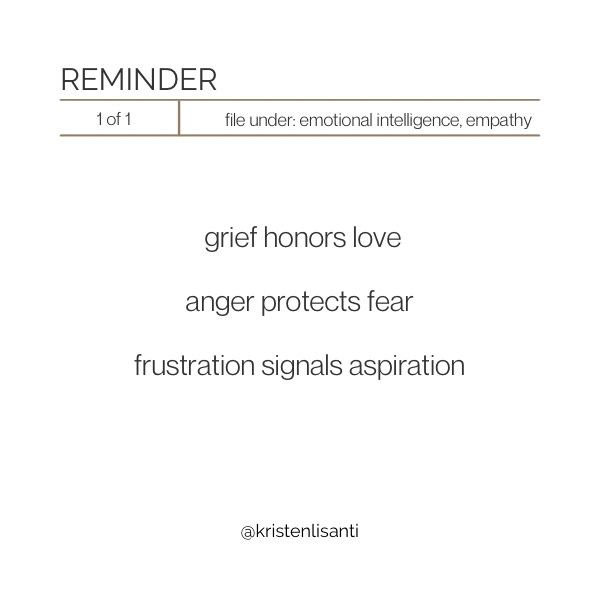The function of feeling
What this rage is for
Growing up, I loved watching Star Trek: The Next Generation, in which Captain Jean-Luc Picard and his crew on the USS Enterprise explored the galaxy. My favorite character was the ship’s half-Betazoid counselor, Deanna Troi. An empath, she could sense the emotions of others, which was mighty useful when encountering other civilizations, but in times of great suffering became more of a burden than a gift.
When I was 10, I thought this was the coolest job I’d ever heard of, and 30 years later I’ve managed to make a career of practicing empathy. As a coach, I love the work of attuning to the emotions of myself and others, working with them as an instrument, a compass pointing us toward insight, understanding and connection.
But there are times—and this is one of them—when I almost feel envious of Troi’s android crewmate, Data, whose AI programming left him without any emotions at all. He was pure reason, stunning intellect. And while there was that time Data received an “emotion chip” and his newfound anger turned him against the Federation, I suppose only underscores my point: Sometimes emotions seem to be more trouble than they’re worth.
So in times like these I remind myself of why we have emotions in the first place:
Emotions signal needs that we have. If we can interpret these signals, we can better understand and address our own needs.
Emotions connect us to other people. If we understand our own emotions, we are more attuned to the emotions of others and better able to communicate effectively about our respective needs.
Emotions inform our decisions and motivate our actions. If we are able to leverage all of this emotional data (if you will), we will make more skillful choices and our actions will be more impactful.
Every single emotion we have is a valid and valuable source of data. Even the rage that many of us have been carrying like hot coals in our hearts these past weeks, reignited into flames by the white supremacist mass shooting in Buffalo, NY. This anger that sears our souls is sounding the alarm that boundaries and values have been violated, and need protection.
And anger is rarely alone. I often find fear riding along, sometimes with shame, regret and despair thrown into the backseat.
In the comments: What other emotions might your anger be protecting?
Though deeply unpleasant, there’s nothing wrong with any of these feelings. They are all trying to help me make sense of an impossible moment and stay safe in an often dangerous world. They are complex, finely tuned and rich with information about what is happening, who I am, what I believe, what I need and what I need to do.
Still, we push them away, try to talk ourselves out of them, judge ourselves (or others) for feeling them. When will I stop grieving? even when that grief honors a lost love. She gets frustrated about the littlest things! even when that frustration points to a vision of how much better things could be.
Our emotions make us human. They bind us together. They make us wise.
Lets consider that this data—the data that Data longed for most, that saved lives and protected planets in the hands of Deanna Troi—may also hold the keys to saving our own lives, and protecting our own planet. Let’s respect it as such.
This week
For your consideration:
What is your relationship to your emotions?
Do you sometimes wish you could feel less?
What is the emotion you don’t want to feel right now?
What other emotions are beneath it?
What needs are they pointing to?
How does this inform your next choice?



Thank you, Kristen. All of this resonates.